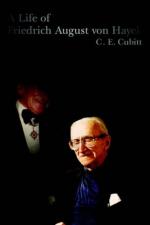|
This section contains 7,067 words (approx. 24 pages at 300 words per page) |

|
SOURCE: “The Liberalism/Conservatism of Edmund Burke and F. A. Hayek: A Critical Comparison,” in Humanitas, Vol. X, No. 1, 1997, pp. 70-88.
In the following essay, Raeder compares Hayek's thought with that of Edmund Burke to argue that both share a commitment to a conservative, moderate liberalism.
Edmund Burke, the passionate defender of the “ancient principles”1 of his forebears, might be surprised to discover that he originated a new school of political thought. By all accounts, however, he is the “modern founder of political conservatism,”2 and generations of ‘conservative’ thinkers have found his life and work a rich source of philosophical and practical wisdom. Burke, of course, was a statesman and not a political philosopher, and he never produced anything that may be regarded as a systematic political treatise. Nevertheless, he embraced a consistent political creed that governed his actions throughout his life. The thesis of this essay is...
|
This section contains 7,067 words (approx. 24 pages at 300 words per page) |

|


